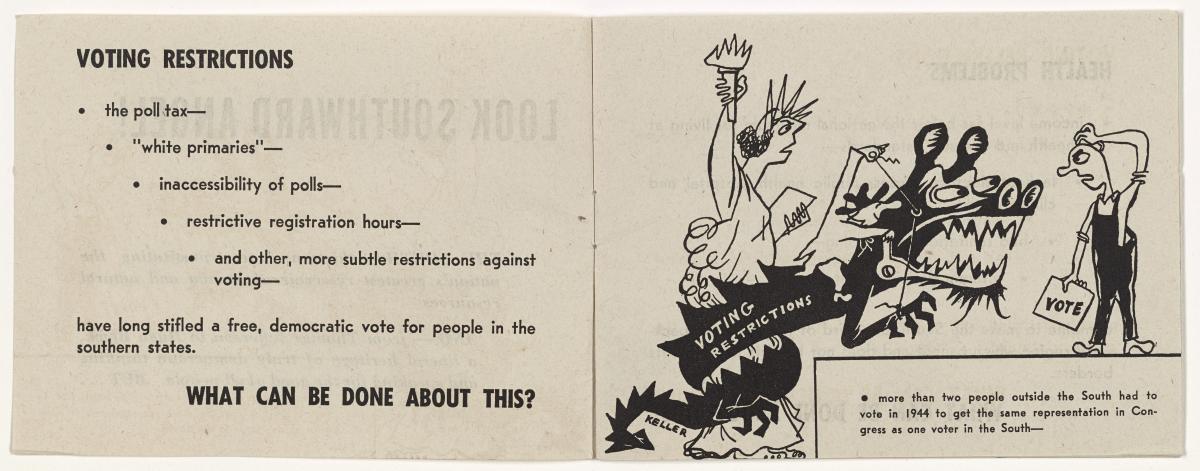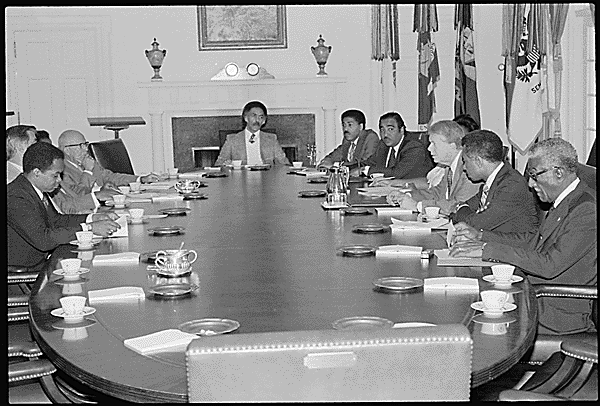
Voting Rights Organizations
Most of the records held by the National Archives concerning these voting rights organizations originated from interaction between these groups and the Federal government. As such, one of the larger bodies of records tend to be FBI investigations into groups such as the NAACP and SNCC. Additionally, meetings and correspondence between politicians and group leaders are featured, particularly as the Federal government became more active in securing Black suffrage in the 1950s and 1960s.
Search the Catalog for Records relating to Voting Rights Organizations

